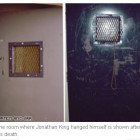Steve Reba: His Life
|
Of all my cases, his is far and away the most unjust, living in the fracture just out of the reach of Graham. I met him among the ragged novels in the prison library, a small table between us. I began the conversation as I begin every first conversation, “Tell me about your life before the alleged offense and prison.” Nervousness paralyzed his words, which I attributed to the natural reaction that unsounded desperation has when presented with a modicum of hope. His story was sadly common. Siblings defaulted to the role of parent while a mother worked three jobs. A father would show up occasionally, deliver a beating, and vanish. He knew precisely how many times he had seen the man. The last time, particularly memorable, involved a blow that left the boy disabled. The transitory family moved from government-subsidized housing to mobile home parks in the small North Georgia town. Some residences theirs, some the homes of kind neighbors who let them stay for awhile.

